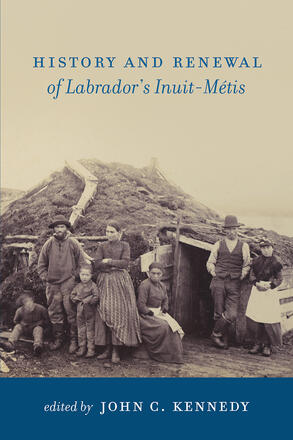
History and Renewal of Labrador's Inuit-Métis
Description
History and Renewal of Labrador’s Inuit-Métis is a collection of twelve essays presenting new research on the archaeology, history, and contemporary challenges and perspectives of Inuit-Métis of central and southeastern Labrador from Lake Melville south to Chateau Bay. It reports on results from “Understanding the Past to Build the Future,” a Community-University Research Alliance (CURA) funded by the Social Sciences and Humanities Research Council of Canada (SSHRC) in partnership with the southern Labrador communities represented by the NunatuKavut Community Council. Contributing authors include veteran Labrador Studies specialists as well as emerging scholars. Many of their findings challenge longstanding assumptions about Labrador’s Aboriginal history.